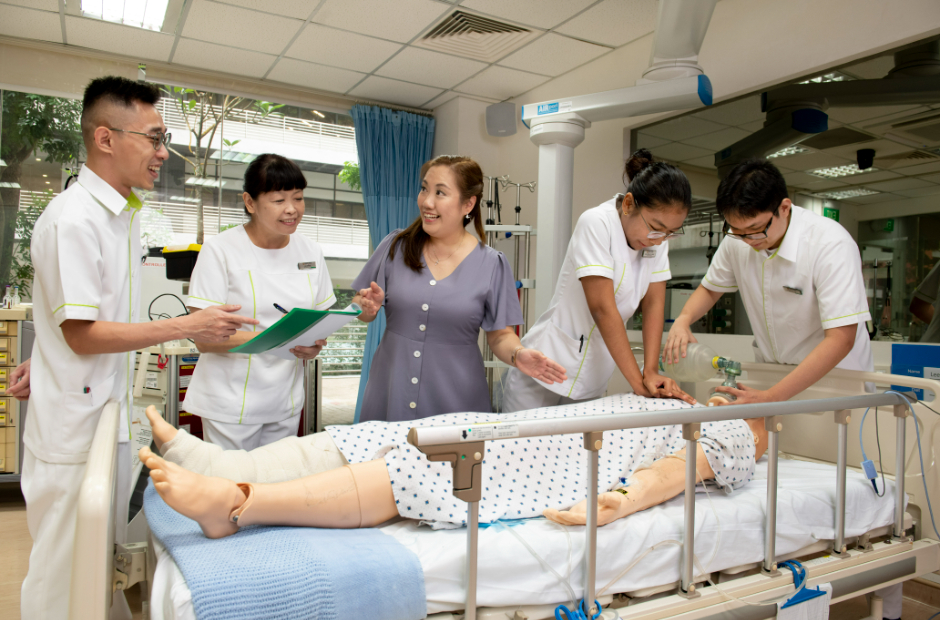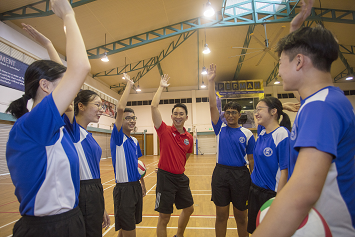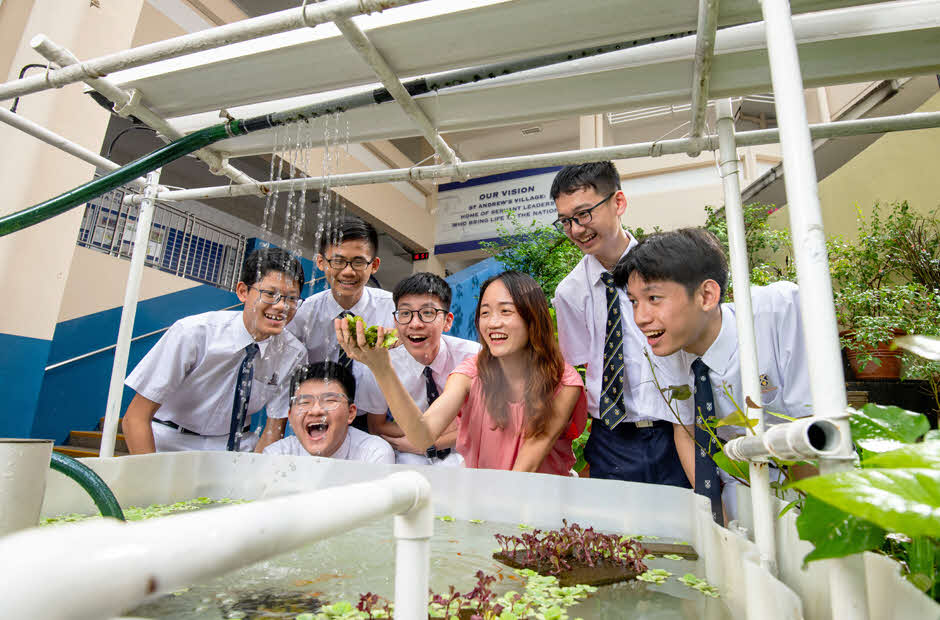It’s lesson time for the nursing students in Ngee Ann Polytechnic (NP). Ms Clarissa Lee Vwen Chia can be heard berating someone on the phone and slamming down the receiver. Stunned, the students take time to recover before sniggering at what had just happened.
Ms Lee is a Senior Lecturer at NP’s School of Health Sciences and that was her acting as a time-strapped medical staff in a hospital emergency room. Now, the students know first-hand how badly tempers can fly from the stress, and how nurses must keep a cool head, no matter how heated the calls may get.
When not role-playing for scenario-based lessons, Ms Lee is training nurses who can hit the ground running. She oversees the Diploma in Nursing and Nursing Career Conversion programmes at NP, where scenario-based learning is a signature pedagogy.
From school to ICU and back to school
Since young, Ms Lee had always wanted to be a nurse – it’s in her nature to care, she explains. As a trainee, Ms Lee felt most at home at the Intensive Care Unit (ICU), which constantly put her in unpredictable situations. “I can’t sit still, I like to think on my feet,” she says, laughing as she reminisced about those days.
It appeared that there was nothing else she wanted more, until one day, as a nursing student, she encountered a lecturer who inspired her with multiple stories of life as a nurse.
She decided that she, too, wanted to have the opportunity to impact nurses-in-training, and changed her ambition to becoming a lecturer.
Even as a 19-year-old then, she performed her clinical duties with the end in mind — to accumulate experience and shore up stories to tell her future students.
True to her ambition, after 12 years of clinical work and a degree under her belt, she switched to teaching. As a natural storyteller, she draws frequently on her experiences to add life to simulations, which students relish.
Even her experience of having been a patient undergoing surgery is worked into her teaching.
“The patient’s experience is very different from a nurse’s experience,” she says. Though she knew exactly what to expect from the medical procedure as a nurse, she found herself crying when lying on the surgical table in the operating theatre.
The fear and uncertainty of how the medical procedure will turn out are emotions that every patient has to confront; she feels that sharing these thoughts openly with her students can develop empathy in them, and shape their decisions on how they would treat their patients in the future.

Working towards common national standards for simulation training
Spend some time with Ms Lee and you may catch some army-style references like “we are the last line of defence”, which is one of her favourite lines. After all, nursing deals with urgent matters of life and death, and she wants to drum this into her charges.
“There is no going back once medication is served and swallowed, and any mistakes can have far-reaching consequences, affecting not just the patient but the lives of their families, too,” she explains.
Ms Lee thrives on straight talk, which may also be why her simulation training sessions closely mirror reality.
Last year, she represented NP in an exercise led by the Singapore Nursing Board to create a set of common simulation standards and guidelines across local educational institutions that train nurses. Sparked by real-life hospital scenarios during the COVID-19 pandemic, these standards will “shape the landscape of simulation used in education to replace clinical placements and close the theory-practice gap during future pandemics”, she says.
She also led a team at NP to develop a set of clinical scenarios and assessments that are anchored in real-life situations and current industry practices that develop analytical and deductive skills.
Each scenario integrates knowledge from both nursing sciences and pharmacology, and covers training on patient assessment and education. The programme also hones communication skills, so that nurses will interact more effectively with all parties, including doctors, patients and caregivers.
One aspect that gives Ms Lee great delight is how NP has gained a reputation for training interns who ask salient questions. Specifically, their internship grades consistently show that students have developed critical thinking.
“What kind of nurse do you want to be? One who just does the job, or one who treats the patient with heart? That makes all the difference to your patient.”
Ms Clarissa Lee
Leaving no nursing student behind
To allow more students to learn more effectively and at their own pace, Ms Lee set up modules on POLITE Mall, a learning portal jointly developed by the polytechnics and ITE.
Three semesters ago, she also piloted Competency-Based Rubrics for the Integrated Nursing Science modules to assess students more accurately and comprehensively.
“Leave no man behind” is a motto of this mother-of-three. She wants her classroom to be a safe space where there is no shaming of anyone who makes mistakes in the course of learning. She is heartened whenever she sees better-performing students offering moral and academic support to the weaker students, at the extra study sessions that she runs.
“We all sail together,” Ms Lee declares, and if someone is struggling with any topic, “we will clear this module together”.
Looking back on her 11 years at NP, she is thankful for her colleagues, whose commitment is most evident when they go the extra mile to respond to their students’ work-related questions during their internships.
Her students may vary in age – her oldest student was 61 years old – but she feels like a mother to them all, journeying with them during their internships and mentoring them even after they graduate.
For both educators and students, it’s all about the heart, she says.
“I ask my students, ‘What kind of nurse do you want to be? One who just does the job, or one who treats the patient with heart? That makes all the difference to your patient.’”
How does she know if she has become an educator like the lecturer who inspired her so many years ago?
Ms Lee shares that a student had said that she wanted her fellow Singaporeans to feel that they are being “treated like a loved one” when they are under her care.
“This is my joy as an educator,” says Ms Lee, beaming. “She puts her heart into serving her patients.”






.jpg)